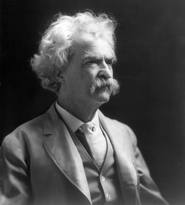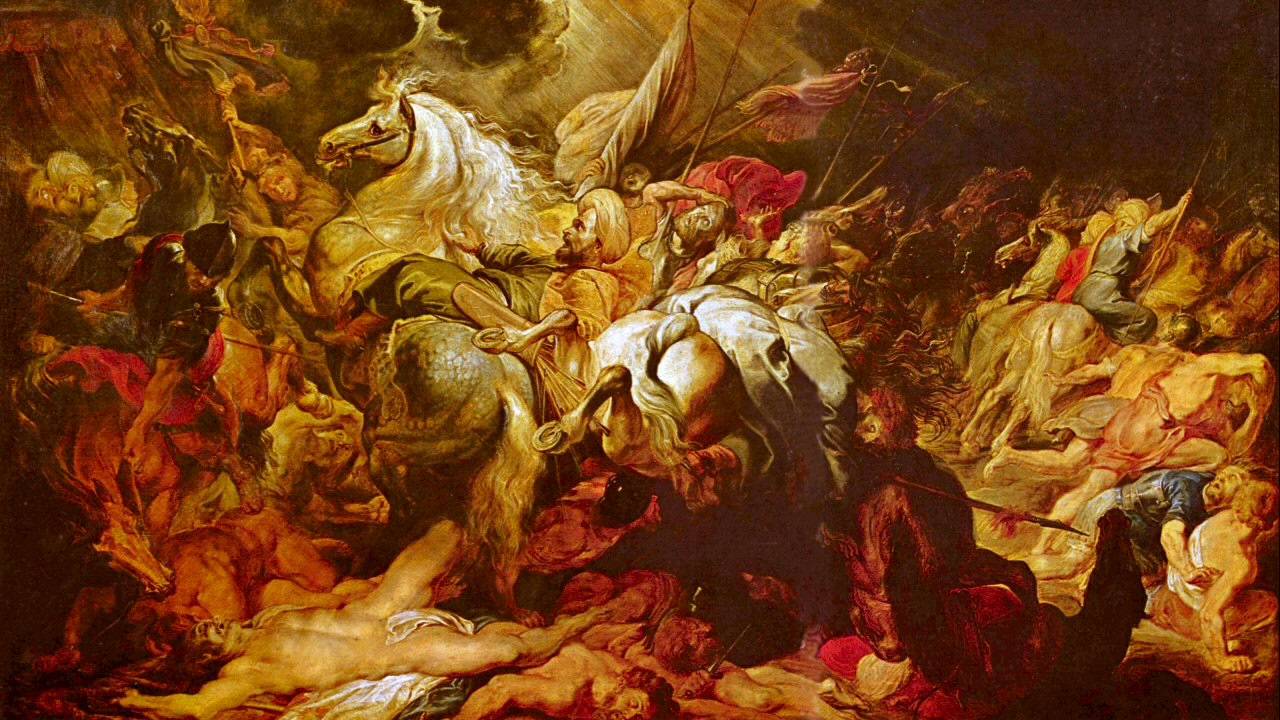PodcastsText
HighlightsRejuvenation and Redemption - Perek 35
While describing the geulah, Yeshayahu presents very powerful images of the land of Israel flourishing as the redemption arrives. In perek 35 he mentions this a number of times. For example - Yeshayahu 35:6-7
לה,ו אָז יְדַלֵּג כָּאַיָּל פִּסֵּחַ, וְתָרֹן לְשׁוֹן אִלֵּם: כִּי-נִבְקְעוּ בַמִּדְבָּר מַיִם, וּנְחָלִים בָּעֲרָבָה. לה,ז וְהָיָה הַשָּׁרָב לַאֲגַם, וְצִמָּאוֹן לְמַבּוּעֵי מָיִם; בִּנְוֵה תַנִּים רִבְצָהּ, חָצִיר לְקָנֶה וָגֹמֶא.
6 Then shall the lame man leap as a hart, and the tongue of the dumb shall sing; for in the wilderness shall waters break out, and streams in the desert. 7 And the parched land shall become a pool, and the thirsty ground springs of water; in the habitation of jackals herds shall lie down, it shall be an enclosure for reeds and rushes.
This image is so powerful the sages of the Gemara note that the flourishing of the land of Israel is one of the surest signs that the redemption is on the way.
Talmud Bavli, Sanhedrin 98a
ואמר רבי אבא אין לך קץ מגולה מזה שנאמר (יחזקאל לו, ח) ואתם הרי ישראל ענפכם תתנו ופריכם תשאו לעמי ישראל וגו' רבי (אליעזר) אומר אף מזה שנאמר (זכריה ח, י) כי לפני הימים (האלה) [ההם] שכר האדם לא נהיה ושכר הבהמה איננה וליוצא ולבא אין שלום מן הצר
And Rabbi Abba says: You have no more explicit manifestation of the endof days than this following phenomenon, as it is stated: “But you, mountains of Israel, you shall give your branches, and yield your fruit to My people of Israel, for they will soon be coming” (Ezekiel 36:8). When produce will grow in abundance in Eretz Yisrael, it is an indication that the Messiah will be coming soon. Rabbi Eliezer says: You have no greater manifestation of the end of days than this following phenomenon as well, as it is stated: “For before these days there was no hire for man, nor any hire for beast; nor was there peace from the oppressor to him who exits and to him who enters”(Zechariah 8:10). When there are no wages for work and no rent paid for use of one’s animal, that is an indication that the coming of the Messiah is at hand.
We have witnessed this miracle unfolding over the last 150 years. But to fully appreciate how much has occurred, we need to understand how unexpected this growth really is. Here are the words of Mark Twain from his visit to the area in 1867.

“ ...[a] desolate country whose soil is rich enough, but is given over wholly to weeds-a silent mournful expanse....A desolation is here that not even imagination can grace with the pomp of life and action....We never saw a human being on the whole route....There was hardly a tree or a shrub anywhere. Even the olive and the cactus, those fast friends of the worthless soil, had almost deserted the country.”
- 1867 (Quoted in Mark Twain, The Innocents Abroad. London: 1881)
Sancheriv's Destruction - Perek 37
Yeshayahua describes the events leading up and the actual event of the destruction of Sancheiriv. What is curious is that we have very little understanding about what happened that incredible night when all the 185 000 soldiers dropped dead. Here is what Tanach tells us.
Yeshayahu 37:36
לז,לו וַיֵּצֵא מַלְאַךְ ה׳, וַיַּכֶּה בְּמַחֲנֵה אַשּׁוּר, מֵאָה וּשְׁמֹנִים וַחֲמִשָּׁה, אָלֶף; וַיַּשְׁכִּימוּ בַבֹּקֶר, וְהִנֵּה כֻלָּם פְּגָרִים מֵתִים
36 And the angel of the LORD went forth, and smote in the camp of the Assyrians a hundred and fourscore and five thousand; and when men arose early in the morning, behold, they were all dead corpses.
What actually happened?
Historically speaking there is an interesting suggestion in the words of Josephus, Antiquities X:1:5
"Now when Sennacherib was returning from his Egyptian war to Jerusalem, he found his army under Rabshakeh his general in danger [by a plague], for God had sent a pestilential distemper upon his army; and on the very first night of the siege, a hundred fourscore and five thousand, with their captains and generals, were destroyed. So the king was in a great dread and in a terrible agony at this calamity; and being in great fear for his whole army, he fled with the rest of his forces to his own kingdom, and to his city Nineveh; and when he had abode there a little while, he was treacherously assaulted, and died by the hands of his elder sons, 3 Adrammelech and Seraser, and was slain in his own temple, which was called Araske. Now these sons of his were driven away on account of the murder of their father by the citizens, and went into Armenia, while Assarachoddas took the kingdom of Sennacherib." And this proved to be the conclusion of this Assyrian expedition against the people of Jerusalem.
However, the classic Mefarshim move away from trying to understand exactly what happened but rather why it happened. Here, for example, are the words of R. David Kimchi, the Radak. The focus is more on what we are supposed to take away from this episode.
ואין לשאול טעם למעשה האל יתברך כי ה' נורא עלילות למה לא נגפו אז אלא עד שהלך להלחם עם מלך כוש ואח"כ שב לירושלם והטעם הנראה לנו בזה כדי שיהיה להם לישראל בזת כוש ומצרים ועוד שיראו כוש ומצרים הנפלאות שעשה לאוהביו ולדורשי שמו כי מלך אשור נצח אותם וכל הארצות כבש ובירושלים נגף בלא חרב ובלא חנית והאל נתן בלב מלך אשור להביא חיל מלך כוש ומצרים לירושלים עמו להפחיד יושבי ירושלם עוד:
Who was Merodach-Baladan? - Perek 39
Chizkiyahu welcomes a state visit from his northern ally in Bablyon, Merodach Baladan. Yeshayahu is very displeased with this visit as it indicates Yeshayahu's willingness to put his trust in an anti-Assyrian alliance rather than lying low and trusting in Hashem. To appreciate the context, here is what the Encyclopedia Britannica has to say about who this Babylonian king was and his crucial role in this alliance.
Merodach-Baladan II, Babylonian Marduk-apal-iddina Ii (“Marduk Has Given Me an Heir”), (died c.694 BC), king of Babylonia 721–710 and for nine months in 703, who maintained Babylonian independence in the face of Assyrian military supremacy for more than a decade.
Commencing in 728 the king of Assyria also officially held the title of king of Babylonia. During that time Merodach-Baladan, a member of the Yakin tribe, was a district ruler in Chaldea. During the unrest surrounding the accession of Sargon II of Assyria in 722, Merodach-Baladan entered Babylon and claimed the Babylonian throne, which had belonged to his forebear Eriba-Marduk. An attack by the Elamites two years later so weakened the Assyrians—though both sides claimed victory—that, as king of Babylonia, Merodach-Baladan remained unmolested by Assyria for the next 10 years. According to Assyrian accounts, Sargon marched south against Babylonia in 710. After defeating the Elamites and Merodach-Baladan’s other allies, he turned toward Babylon. Merodach-Baladan fled, and the leading citizens of Babylon brought Sargon unopposed into the city, where he officially became king of Babylonia. The next year Sargon captured and destroyed Merodach-Baladan’s capital, Dur-Yakin. Sometime after the death (705) of Sargon, Merodach-Baladan sent an embassy to Hezekiah of Judah in an attempt to foment unrest against the new Assyrian monarch, Sennacherib. In 703 he again seized the Babylonian throne. Before the end of the year, however, Sennacherib marched south and defeated the Babylonian forces. In 700 Sennacherib marched to Bit-Yakin in pursuit of Merodach-Baladan, who again fled, this time to southern Elam, where he died sometime before 694. Comments
0 Comments
Leave a Reply. |
Nach YomiHere's the way it works. From Monday to Thursday I will be posting a 5 minute podcast of the chapter of the day. It will be a brief summary with a few points to ponder. I will also be sending out the Sefaria text so you can use it. Archives |
Proudly powered by Weebly

